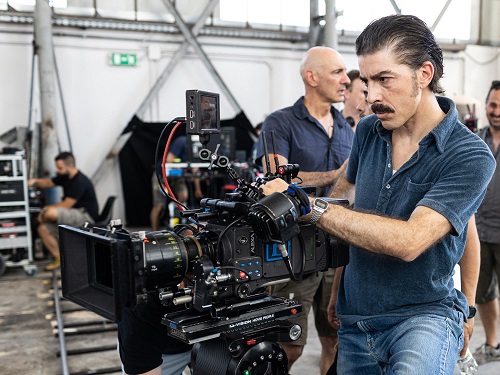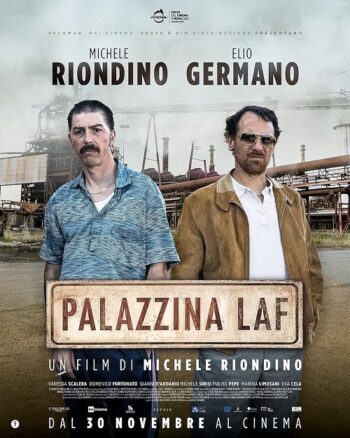Apulian Director debuts with hometown story
TORONTO – Apulian actor and filmmaker Michele Riondino debuts directorially with a story close to home – his home – Taranto. The titular building, “Palazzina LAF”, was a derelict office space, which the Taranto steel company [Llva] used to house its workplace exiles.
The now infamous details of Llva’s corporate takeover and environmental crimes were revealed in an investigation and court case in 2012. While Riondino’s father was an employee at Llva during the scandalous period and had recounted much of what was happening real time, the Director nonetheless spent seven years preparing the film. “I was able to intercept those who were confined [at Palazzina LAF], the judges, the lawyers, the psychiatrists. I also tried to interview those who were sentenced as guilty, and therefore studied the procedural papers”.
Riondino’s interviews for the film reveal not only his feelings of personal responsibility to the people of Taranto, but to all workers whose lives and family’s lives might be affected by workplace injustice. In his hands, this Taranto tale plays as both an intimate and universal story.
When engineers and furnace workers at Llva are confronted by a corporate takeover in 1995, a Personnel Manager (Elio Germano) attempts to blackmail and coerce staff into accepting demotions. The noncompliant are sent to Palazzina LAF, a dilapidated building on site intended to psychologically dispirit said workers.
In the lead role is Riondino himself, playing Caterino La Manna, one of the Steel Plant’s battery coil cleaner’s – a hazardous duty which was found severely damaging to the lungs. When he’s offered the opportunity to act as a company spy in exchange for a promotion and a company car, Caterino accepts.
The story propels forward as his infiltration of Palazzina LAF sees him recording and reporting on the workers’ attempts to prepare legal grounds to protect their rights. By description it all sounds very serious and as far as the true story case goes, it was and is a matter of life and death. But, as would have been the natural cope for Palazzina LAF’s exiles, Riondino injects the right measure of sardonic humour, bringing the story closer to the viewer.
The Director has been lauded for bringing the story to screen and bringing attention to an historical case that for many Italians, had been scarcely known. Aside from Alessandro’s Leogrande’s book “Fumo Sulla Citta”, from which the screenplay is based, and a 2021 Documentary by Victor Cruz, the Palazzina LAF scandal has lacked exposure – considering the Steel Plant’s emissions of dioxin accounted for 30.6% of all emissions in Italy in 2002. The 2002 report also linked the “abnormally high cancer incidence in the area” to the elevated emissions.
For Riondino, at the heart of the story is a heed to come together in the workplace. It is, after all, the community we tend to spend more time in than away from. “It is important to talk about work today, because the employee is under siege and we know little of what happens in factories…until the workers come out and complain about something”. And sometimes, as was the case with Llva, it’s too late.
Massimo Volpe is a filmmaker and freelance writer from Toronto: he writes reviews of Italian films/content on Netflix





